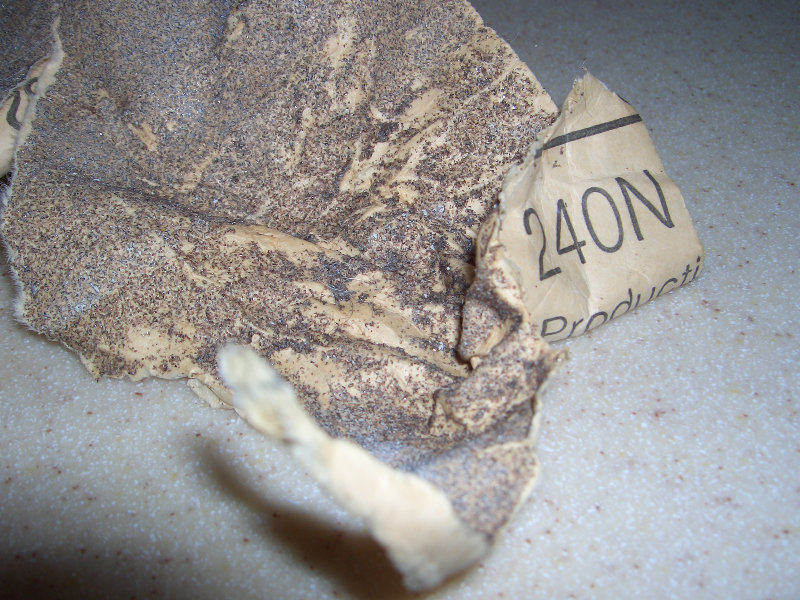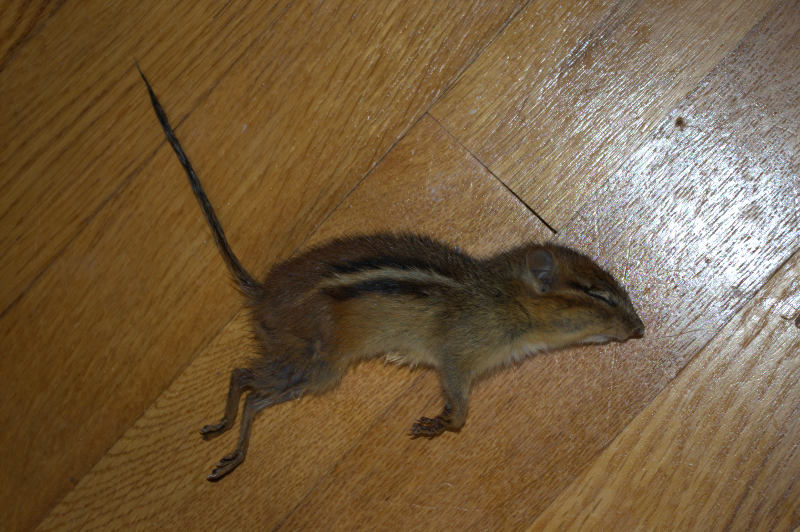
|
Daynotes
Journal
Week of 20 October 2008
Latest
Update: Sunday, 26 October 2008 09:10 -0500 |
08:16
-
Barbara finished painting most of the kitchen and dining room
yesterday, so things are progressing. While she did that, I worked on
the fingerprint chapter, which I managed to finish the lab session
write-ups for by dinner time. Here's the lineup.
Introduction
Laboratory 9.1: Dusting and Lifting Latent Fingerprints
Laboratory 9.2: Revealing Latent Fingerprints Using Iodine Fuming
Laboratory 9.3: Revealing Latent Fingerprints Using Ninhydrin
Laboratory 9.4: Revealing Latent Fingerprints Using Silver Nitrate
Laboratory 9.5: Revealing Latent Fingerprints Using Superglue Fuming
Laboratory 9.6: Revealing Latent Fingerprints Using Gentian Violet
Laboratory 9.7: Revealing Latent Fingerprints on Cartridge Cases
That's the bulk of the work done on that chapter. Of course, I still
have to run the lab sessions, shoot images, and do re-write as needed.
With this latest group complete, I now have 40 finished lab session
write-ups, with maybe a dozen or so remaining to do, as well as some
work on the preliminary narrative chapters.
Once I finish all
the lab session write-ups, I'll spend an intensive couple weeks in the
lab, running through the lab sessions (some repeatedly) and shooting
images, lots and lots of images. After any necessary corrections and
re-writes on the lab sessions, they'll be ready to roll. At that point,
I can do stuff like going through the lab sessions to make up a
consolidated list of everything needed to do the sessions, which I need
for the preliminary chapters. The final job will be to write the
preface and introduction, after which the book will go to O'Reilly for
production.
Oh, yeah. Sometime during these final steps, I need
to get the next book nailed down and under contract with O'Reilly. That
means I need to do a proposal/TOC for the new book. I'm going to pitch Illustrated Guide to Home Biology Experiments.
I would have pitched a home physics lab book next, but Tom Sguoros (my
editor for the home chem lab book) is already hard at work on that one.
With
those four complete, we'll have the Big Three high-school science
subjects covered pretty well, as well as forensics, which is just plain
interesting. I'm intentionally keeping the forensics lab book
relatively light on theory and prerequisites and heavy on fun and
interesting stuff, which'll make it appropriate as a first "serious"
science lab course. Other than a microscope, it won't require much in
the way of expensive equipment, so it'll be accessible for kids (and
their parents) of late middle school through early high school age.
I'm
already hearing rumblings from the folks at O'Reilly about me coming to
Maker Faire next spring to promote the forensics book, so it's possible
you'll see me out there, wearing my deerstalker and smoking my pipe.
07:43
-
Barbara and I have been watching the PBS series Evolution, which we
recorded long ago but never got around to watching. One of the things I
really enjoy about a series like this is listening to scientists
talking about their work. Even when I have no idea what they're doing,
I know exactly what they're doing. They're doing science, and the
essentials don't change.
I suspect I'm no different from most
scientists in this respect. Biologists love to listen to chemists talk
about chemistry. Chemists love to listen to physicists talk about
physics. And physicists love to listen to biologists talk about
biology. Because, in every case, it's science that's being talked
about. In that respect, it's a universal language.
If you still believe there's any validity to the idea of anthropogenic global warming, read this Open letter from The Viscount Monckton of Brenchley to Senator John McCain about Climate Science and Policy.
Forensic evidence.
Yesterday morning, I heard a strange noise coming from the den. I found our 9-year-old Border Weasel, Malcolm,
on the love seat, shredding and gnawing a piece of sandpaper. I
explained to Malcolm that Border Weasels are an endangered species, and
if he ever did that again, they'd be even more endangered. Barbara
claims he was just sharpening his fangs.
I
don't look at the stats for my web sites very often, but I took a quick
look last night at the top ten agents, not counting bots. There are
some interesting trends.
Of every 10,000 visits by the top 10
agents, 7,355 were with Windows XP. Ubuntu Linux was in second place,
with 1,456, Windows Vista third place, with 913, and Mac OS X fourth
place, with 424. So, for this site at least, Vista has only about an
eighth the share of XP, only a bit more than half the share of Ubuntu
Linux, and only a bit more than twice the share of OS X.
I
haven't looked at how time-of-day skews those results, but visits to
this site occur primarily during business hours. My guess is that a
substantial percentage of those XP systems are corporate boxes, while
most of the Linux, Vista, and OS X systems are personal boxes.
Presumably, the Vista systems are mostly personal ones that haven't yet
been upgraded to XP or Linux.
The browser breakdown is even more
stunning. Of every 10,000 visits by the top 10 agents, only 1,308 are
with any version of Internet Explorer. The remainder, 8,692, are with
Firefox, including those of the OS X visitors. Here, at least, the war
is over and Firefox won.
Those top 10 agents account for just
under 31% of total visits. No doubt the other 69% include other flavors
of Linux, OS X running Safari, and so on, but I suspect that 31% is
representative overall. It's certainly likely that my visitors are not
representative of the general population. Most of my readers are much
more knowledgeable about computers and software than average. But it's
clear that among this group OS X and Linux are coming on strong, Vista
is languishing, and Firefox is killing Internet Explorer. No surprises
there, I guess.
Wednesday, 22 October 2008
08:43
- Here's something that's been in the back of my mind for a couple of years. This article
talks about why the coming collision between hard disk capacities and
unrecoverable read error (URE) rates will make RAID 5 useless. RAID 5
interleaves user data and parity data across all of the drives in the
array. When one drive fails, it can be rebuilt using the parity data on
the remaining drives in the array. But if one of those drives returns a
URE, the rebuild fails and the array is corrupt.
The reliability
of drives in terms of UREs hasn't changed for a long time. For desktop
drives, it's still about one unrecoverable read error per 10^14 bits,
the same as it was five years ago, or even ten. That URE rate
translates into one URE per about 11.37 TB of disk space. Back when
hard drives stored 1 GB, the chance of a URE was pretty remote, on the
close order of 10^-4. But with hard drive capacities now three orders
of magnitude larger, the chance of a URE has become anything but
remote. We can no longer assume that we won't encounter a URE.
I thought
about this problem the first time my main system passed 1 TB in drive
capacity, and decided that RAID 5 was no longer a viable option.
Instead, I elected to go with RAID 1, either by literal mirroring or by
simply keeping copies of data on multiple drives. I've continued that
practice for the last couple of main systems, one with 2 TB on
four spindles and the current one with 3 TB on four spindles. I'm
getting ready to build a new main system, which'll have 6 TB of
internal disk space. In each case, I've avoided RAID, instead opting
for massive replication of data across completely independent spindles,
both internal and external.
Hard drives are cheap nowadays. If
yours is a typical system, one internal hard drive of, say, 500 GB, the
cost to protect your data against UREs and outright drive failures is
pretty small. Buy an external hard drive, ideally eSATA rather than
USB, or roll your own from an internal drive and an external
chassis. Then periodically copy your data to that external drive.
Having two external drives is even better, because you can alternate
them.
If you're like most people, you probably have a few GB of
valuable data, much of it digital camera files and other stuff that
doesn't change frequently. Move that stuff to an archive directory, and
make two copies of that archive directory on your external hard
drive. That way, if you do happen to get a URE on one of the files
you'll have a second copy of that file in the other directory. Do your
daily backups to dated directories on the external drive, and when the
drive nears capacity delete some of the old daily backup directories.
Yeah,
it means spending time and money to protect against something that may
never happen, but if something bad does happen you'll be very glad
you spent that time and money.
Thursday, 23 October 2008
08:35
-
Thanks to everyone who responded to my question about exporting Outlook
mail and contacts. My friend installed Thunderbird and was able to get
his mail and contacts exported successfully.
With
less than two weeks to go until the election, things are looking pretty
dim for Obama. His lead in the polls, such as it is, is illusory. For
him to actually have a chance, I think he'd need to be up 20% or so in
the polls at this point. Instead, he's in a statistical dead heat in
most places where it counts, or at best by single digits. That illusory
lead will melt away as election day approaches.
And the simple
truth is that Obama's numbers aren't real. A lot of people who tell
pollsters they plan to vote for Obama are lying. They'll stay at home
on election day or vote for McCain. The state of the economy and the
bailout will hurt McCain, but they won't hurt him badly enough to give
Obama the election. I expect a lot of analysts to be scratching their
heads the day after the election.
This year is notable for the
lack of anything even resembling choice. Barbara and I were just
talking last night about the senate race here in North Carolina. We
have a so-called choice between Elizabeth Dole, whom we despise, and
Kay Hagen, whom we despise. The Republicans and the Democrats are all
socialists. There's not a true small government proponent among them.
Republicans, by and large, are anti-science and theocratic. Democrats
favor even larger government than Republicans, if that's possible. None
of them actually support getting government out of our wallets and out
of our lives. They're all a bunch of blood-sucking leeches.
11:15
-
I just realized this morning that I'll be mailing out the November
supplement to HomeChemLab.com subscribers in a week, and it's the last
one that's ready to go. I generally try to keep at least two or three
months ahead in case any unforeseen problems occur. The December
supplement is complete except for a lab session on observing the
oxidation states of vanadium, which I'll write up today and tomorrow,
and the January supplement is roughed out.
For January, I plan
to include a project on making thin-layer chromatography plates. There
are times when TLC just works better than paper chromatography. I
didn't use TLC in the chem lab book because, although TLC plates are
available commercially, they're expensive. The first time I
used TLC, as a teenager, I didn't have any option other than to make my
own. Everyone else did the same. I don't remember if commercial TLC
plates were even available back in the 60s. It's easy enough to do, by
coating microscope slides, and the home made plates end up costing only
a few cents each. Most of that is the cost of the microscope slide, and
they can be recycled.
Saturday, 25 October
2008
00:00
-
09:10
-
I was working in my office yesterday when I heard a blood-curdling
scream from Barbara. I rushed out of my office, shouting "where are
you?" I found her in the dining room, staring down at one of the Big
Three things that women absolutely hate to find in the house. It wasn't
a snake or a gigantic spider. It was a rodent. Either a large mouse or
a small rat. With racing stripes.
I picked it up with a plastic bag, tied off the bag, and disposed
of it. I sprayed the area with Lysol. Barbara is now reasonably happy,
but concerned about how it got into the house. I think she's worried it
might have friends.
Real estate agents claim that what's
important is location, location, and location. That must be true here.
When Barbara sees these things scampering around outside, she thinks
they're cute. But let one get into the house, and she'd stomp it flat
without regrets.
Copyright
© 1998,
1999, 2000, 2001, 2002, 2003, 2004, 2005, 2006, 2007, 2008 by Robert
Bruce
Thompson. All
Rights Reserved.



